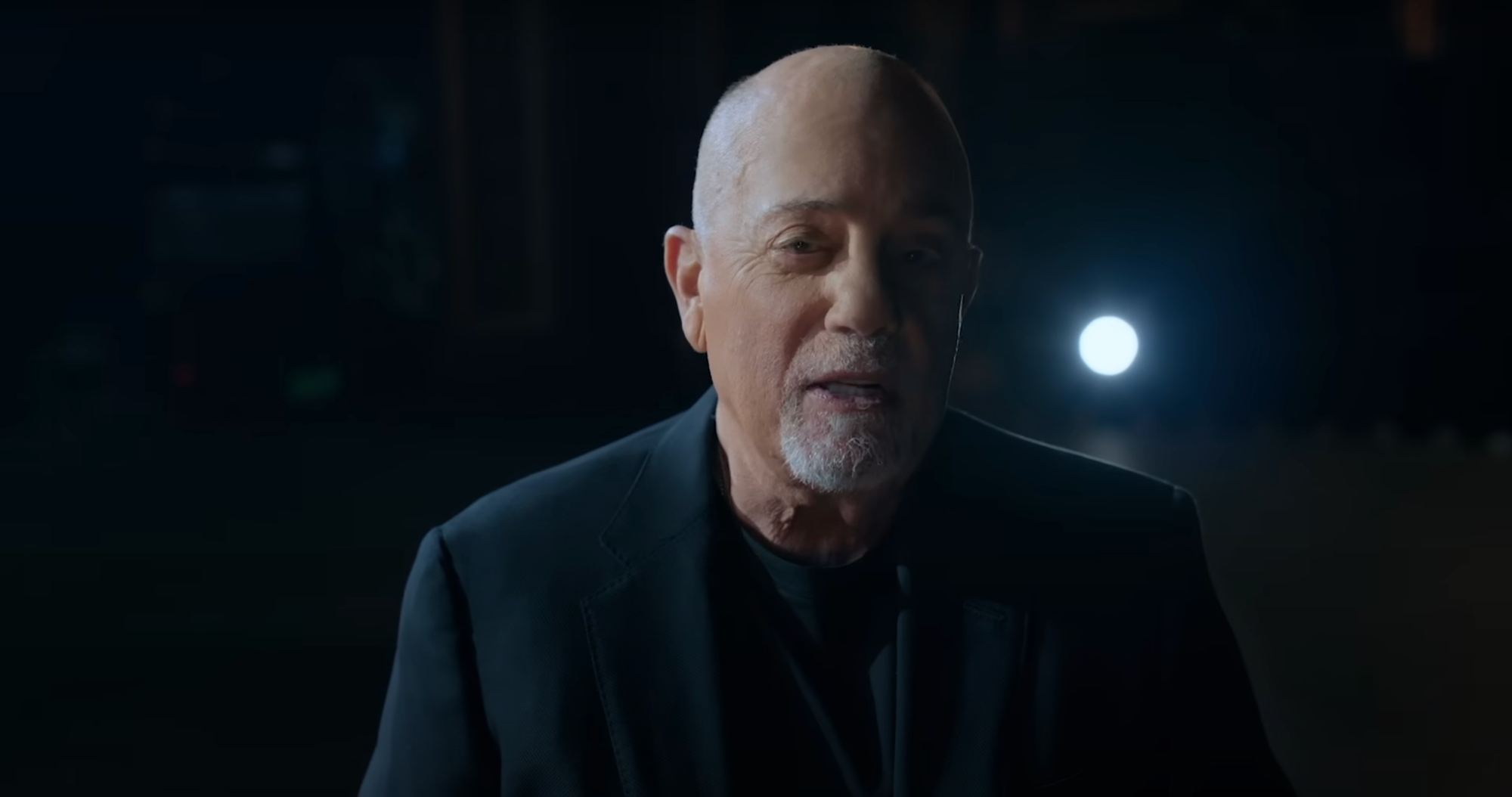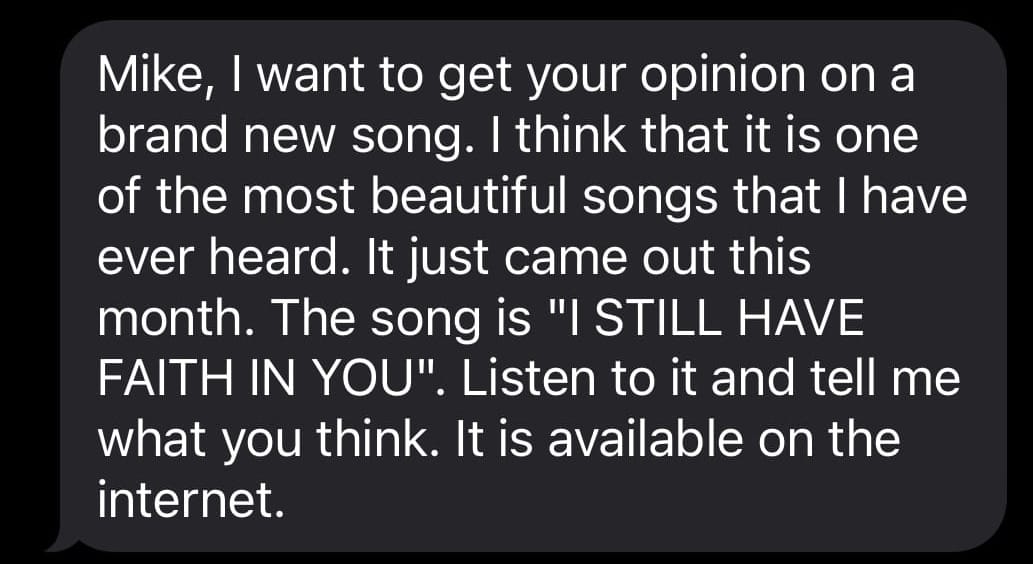The Late Career Artistic Triumph
On Billy Joel and other surprisingly graceful comebacks.

It was hard to believe what I saw on January 21, in a post from, of all accounts, PopCrave - that lightning-fast arbiter of youth and stan culture - suggesting we were going to get something new from Billy Joel.
🚨Billy Joel’s top songs have a mysterious new Spotify canvas teasing the following words:
— Pop Crave (@PopCrave) January 21, 2024
“Did I wait too long.....” pic.twitter.com/cHGN0PWAvS
It's not like this was unprecedented. In 2007, years into my Joel fandom and only a year after seeing him perform a record-breaking set at Madison Square Garden, the Piano Man issued a Tony Bennett-lite love ballad and wrote a song about soldiers in Iraq I'm not sure I've ever heard. But for a known hitmaker who stopped regularly recording when I was in grade school, any time Joel adds to his songbook is a tantalizing proposition. And that's exactly what happened when "Turn the Lights Back On" was released on February 1.
As a Tri-Stater and a former employee of the label that manages his back catalogue, it's hard to be neutral about Joel's stable of singable pastiches and unlikely arena fillers built on piano chords. But I had many questions about a new song, one with such hype behind it (a Grammy performance, an A.I.-suffused video) and an exceedingly rare instance of a Billy Joel co-write. (The only other in his Columbia discography is with, of all people, Cyndi Lauper - and yes, there's that Beethoven crib.)
For me, the least offensive uses of A.I. are audio transcription and making old people look young for nostalgic purposes.
Nearly a month on from "Turn the Lights Back On," and little to no idea if it's the opening salvo from an improbable 13th album of pop tunes, I have no shame in expressing my love for it. Its melody is unable to escape my head, and the vocal production kicks Joel into a familiar upper register I know he cannot regularly sing in at nearly 75 but welcome all the same. And it got me thinking about that rare but most welcome phenomenon: the late career artistic triumph.
The realities of music culture prove that, to paraphrase the philosophers Williams and Hugo, "no-one ever really dies." For decades now, Joel is no stranger to filling large concert spaces. Neither are Paul McCartney, Sting, The Rolling Stones, Bob Dylan, Bruce Springsteen, Madonna, or Peter Gabriel - all legendary, still-active performers whose collective ages total hundreds. Whether they want to or "have" to (most of them don't have to, thanks to lucrative publishing sales), it's not too hard to imagine some of these acts outlasting trends, streaming services or even American democracy.
In that spirit, I want to shine a light on another seven less-talked about but worthwhile acts who've done something just as challenging: released a work late into their discography that stands tall against the rest of their work. Springsteen, Dylan, Madonna, Elton John - they're very rarely away from studios, releasing albums decades into their game that are in some way fulfilling, or at the very least intriguing. It's the flowers you don't expect to bloom that smell the sweetest. Or something like that.
Ben Folds Five, The Sound of the Life of the Mind (2012)
The Sound of the Life of the Mind followed a 3CD Folds retrospective that featured a few new BFF tracks and some great outtakes. I can't recommend it enough.
The late career artistic triumph seems so typically reserved for "classic" acts, but anyone can have one. Just ask piano-pop prankster Ben Folds, whose unpredictable post-millennium career led to a short-lived reunion with his bandmates in Ben Folds Five and even a record that lurched its way into the Top 10. If you wanted a continuation of the plush pop of 1999's The Unauthorized Biography of Reinhold Messner, you would probably not be as kind, but The Sound of the Life of the Mind gave BFF fans everything they could want: more focus from Folds' songbook, a co-write with Nick Hornby that was better than anything the duo released on a whole album together, Robert Sledge's hypnotic fuzz bass tone and a beautiful jewel from drummer Darren Jessee, who wrote the chorus for their biggest hit "Brick."
Janet Jackson, Unbreakable (2015)
Discussion topic: did Janet give us the single best album out of anyone in her family? On some days, I'd say yes.
Blame the fickle nature of being a woman in the music industry or my own ignorance of specific qualifying artists, but it was hard to think of many high-quality albums by female musicians with long gaps between them. A notable and crucial exception is Janet Jackson, who never sounded out of step as a hitmaker well into the '00s. (We all know why that winning streak ended, and we're all right to be upset by it.) Given how popular she was on the radio for a very sustained period, a seven-year gap might as well be twice that. But Unbreakable is like a text from someone you love after some time apart: flutter after gasp of fresh air, courtesy of Miss Jackson, her longtime professional homies Jimmy Jam and Terry Lewis, and a light drizzle of guest verses from J. Cole and an always-welcome Missy Elliott. She's sexy, she's nasty, she's Janet - and we're glad to have her back whenever she wants.
Squeeze, Cradle to the Grave (2015)
There are a number of reasons why Squeeze will never get into the Rock and Roll Hall of Fame, but one has got to be line-ups. Their post-reunion personnel have at least stayed relatively consistent, save the presence of five different bassists (currently a former member of The Roots) and recent additions of a pedal steel player and the guy from Dirty Vegas on percussion.
A possibly apocryphal anecdote has Elton John asking Billy Joel why he stopped releasing new albums, only for Joel to ask why Elton kept doing it. (This was obviously before Songs from the West Coast.) But, point taken: sometimes the joy is just performing the music that made you great in the first place. For years, that seemed to be the destiny for U.K. pop legends Squeeze. Songwriters Chris Difford and Glenn Tilbrook ignominiously dissolved their partnership in 1998, but reactivated Squeeze (mostly with the help of Tilbrook's touring band) for healthy rounds of tours in 2007. Was there still songwriting magic there, though? Eight years later, fans had an answer: Cradle to the Grave, a collection of songs inspired by a British coming-of-age sitcom set around the time Difford & Tilbrook formed the band. While you'd probably have to cherry-pick from this and follow-up The Knowledge (2017) to build a truly perfect album, your trepidation will melt away the second Chris and Glenn sing an octave apart. (Also, they told off the British prime minister in song while he sat a few yards from them? That's rock and roll.)
Steve Perry, Traces (2018)
Perry has since released a pleasant holiday album and let his hair go grey, posting heartfelt tributes to musicians he admires from time to time on social media. He's a king.
"Turn the Lights Back On" proves if you're going to stop recording and then (maybe) start again, you'd better come back with a good story. Steve Perry, who hadn't performed with Journey in over 20 years and only released two solo albums in 1984 and 1994 (he didn't even use the "Don't Stop Believin'" renaissance to work his way back into the spotlight) did just that with 2018's Traces. His story: from 2011 to 2012, he had a passionate romance with psychologist Kellie Nash that ended when she died of cancer. In her final days, she made the reclusive Perry promise to not return to isolation. And how: Traces overflows with the pain and beauty of an artist sharing the pieces of his broken heart with us - delivered on the wings of that iconic voice, only slightly weathered by time.
The Psychedelic Furs, Made of Rain (2020)
Do you consider Love Spit Love part of the Psychedelic Furs continuum? It's still the Butler brothers, but I wouldn't expect the Furs to cover The Smiths, Charmed be damned.
Sometimes the simplest triumphs are the least showiest. Like Squeeze, The Psychedelic Furs seemed quite content to just exist on stage, ending an eight-year hiatus in 2000 and touring quite consistently since then. When I saw them live in 2019, they debuted a new song, "The Boy Who Invented Rock and Roll," which ended up being a prelude to Made of Rain, a record that sounds remarkably in step with the Furs' '80s and '90s back catalogue. Seeing them again in 2023 - one of their last shows before the passing of saxophonist Mars Williams - it was near impossible to separate new songs from old, so straightforward does Richard Butler rasp them.
ABBA, Voyage (2021)
Another stunning work by Industrial Light & Magic, to create fully functioning ABBAtars. (I wish I made that name up.)
In the gauzy haze of that first COVID vaccine year, a new ABBA album felt like a fever dream. The group ended not long after the marriages between its members (Benny Andersson. Anni-Frid Lyngstad, Björn Ulvaeus and Agnetha Fältskog), and everyone seemed happy cultivating Mamma Mia! movies or whatever. Even knowing that the group would release a few songs in support of an ultimately shelved TV project didn't prepare us for a whole ABBA album, and a pretty good approximation of what an ABBA album was: a great ballad, a pretty good uptempo song, and weird popcraft about Christmas morning and some guy named Dan. The best thing anyone can say about Voyage, though, is my father, an ABBA superfan who sent me this text the same week I purchased the album as a birthday gift for him.

Tears for Fears, The Tipping Point (2022)
Let's get the wild bit out of the way: Roland Orzabal of Tears for Fears not only went gray with grace but grew a dope beard. He looks like a wizard!
Maybe the most dramatic of the late career artistic triumphs, because it's easy enough to make an album as good as your past. It's harder to do better - but I'd argue Tears for Fears nearly did just that. The British duo spent the '80s making three popular and influential LPs - a synthpop affair, a widescreen modern rock sampler, and an insane but catchy one - and co-founder Roland Orzabal kept the name going in the '90s after his partner Curt Smith walked away from the group.
The duo reunited in the '00s, made one decent album and toured a lot. Few knew that Orzabal and Smith eventually went through two very difficult professional and personal trials: an attempt to craft a new TFF record with hipper, younger acts they felt no connection to, then the death of Orzabal's wife - who the duo knew since they were all teenagers - after fighting alcohol-related issues. Any act could be forgiven for splitting up, but that is not what Tears for Fears did.
Instead, The Tipping Point combines the sensibilities of both men - the moody cerebralism of Orzabal and the airy wistfulness of Smith - while boasting a production style that sounds somewhere between that abortive modern session and the transition from The Hurting to Songs from the Big Chair. They wrote together and sang honestly and passionately about the tragedy of their situations, the pain of the outside world - no white Brit has written a better song about American politics in 2020 - and the dare to take the next step together. May late period classics like these not always take such a long, long, long time.
